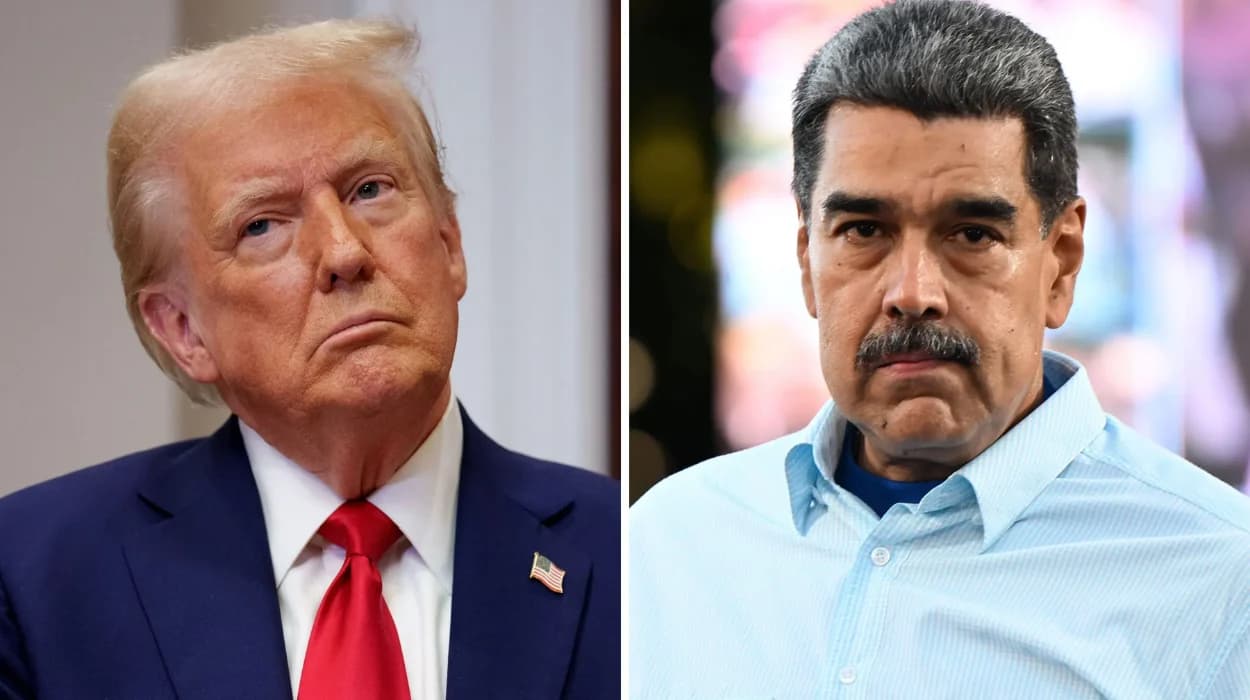President Donald Trump is reportedly orchestrating a
military build-up to oust Venezuela’s leader, Nicolás Maduro, intensifying
tensions in Latin America. This strategy involves covert operations and
diplomatic pressures to destabilise Maduro's regime, as covered extensively by
the Financial Times and other outlets.
Trump’s Strategic Military Posture Against Venezuela
As reported by Joanna Williams of the
Financial Times, President Donald Trump has initiated a significant military
build-up aimed at Venezuela, intending to remove Nicolás Maduro from power
through pressure and potential intervention. The plan reportedly involves
bolstering forces near Venezuelan borders and increasing intelligence
activities to support opposition groups within the country. This military
advance is part of a broader campaign to destabilise Maduro's socialist
government, which Washington views as illegitimate and a threat to regional
security.
Details of the Military Build-Up
According to the Financial Times article by
Williams, U.S. forces have been repositioned in neighbouring countries, with
enhanced surveillance and readiness for potential physical engagement. This
build-up is coupled with diplomatic isolation efforts, sanctions, and backing
for opposition political factions inside Venezuela. The administration’s
strategy mixes military preparedness with economic and political tools to
create maximum pressure on Maduro without direct invasion, though the threat of
military action remains implicit.
International and Regional Implications
The campaign against Maduro has elicited varied reactions
across Latin America. As noted by Sarah Gonzalez of Euronews,
some neighbouring countries, particularly those aligned with the U.S., have
expressed support for efforts to oust Maduro, citing concerns over
authoritarianism and humanitarian crises in Venezuela. Meanwhile, nations
sympathetic to Maduro urge caution to avoid escalating violence or regional
instability. The military build-up by the U.S. extends tensions already high
due to migration flows and economic collapse within Venezuela, potentially
prompting greater geopolitical shifts.
Maduro’s Response and International Statements
In response to these developments, Venezuelan President Nicolás Maduro has condemned what he calls U.S. aggression and interference in national sovereignty, warning of defensive measures. Maduro’s government maintains that these actions violate international law and the principles of non-intervention. Luis Herrera, a spokesperson for the Venezuelan government, told BBC News that
“Venezuela will defend its democracy and sovereignty against any imperialist attack,”
underlining the
regime’s determination to resist pressure.
Broader U.S. Policy Context
The reported military build-up fits within the Trump
administration’s wider Latin America policy aimed at countering left-wing
governments it considers destabilising. This includes continued sanctions and
diplomatic efforts to isolate Venezuela’s government on the international
stage. As Joanna Williams explained in the Financial
Times, these moves coincide with a renewed focus on projecting U.S.
influence in the region as part of a strategic effort to curb alliances between
Venezuela, Cuba, and other socialist governments.
Potential Outcomes and Risks
Experts cited in various reports highlight that while the build-up enhances the potential for regime change, it also raises risks of unintended consequences, including violent conflict and refugee flows. As Sarah Gonzalez noted for Euronews, the situation remains fluid, with calls from international bodies for peaceful resolution and dialogue to avoid exacerbating the crisis.
The Trump administration’s military and diplomatic posture towards Venezuela represents a significant escalation in efforts to topple Nicolás Maduro. While designed to apply pressure without direct combat, the situation remains volatile with serious implications for regional stability. Both the U.S. and Venezuelan leaders continue to articulate their positions firmly, setting the stage for potentially historic developments in Latin American geopolitics.
